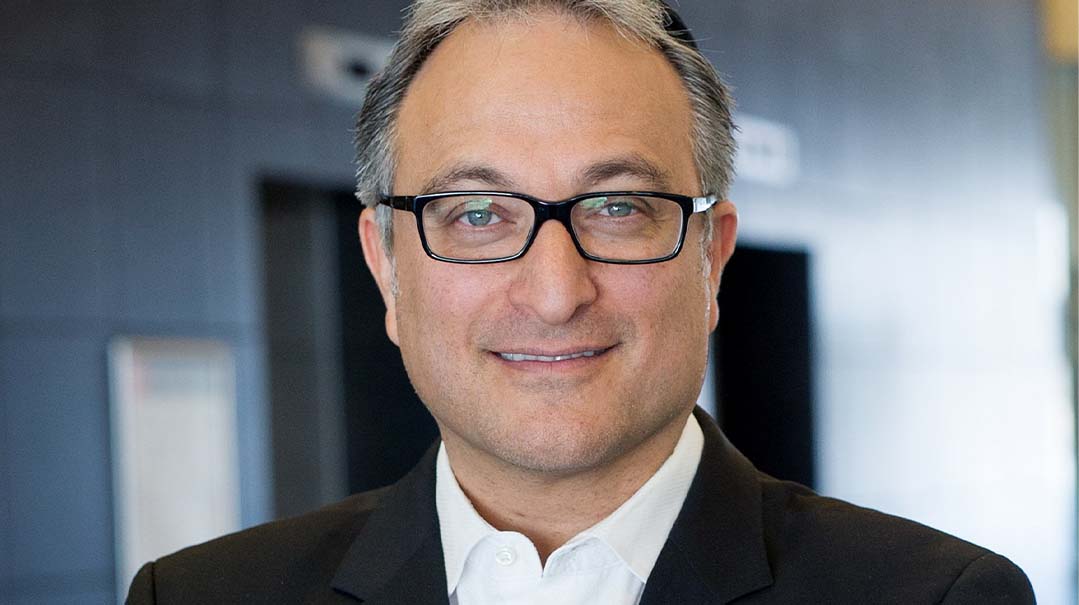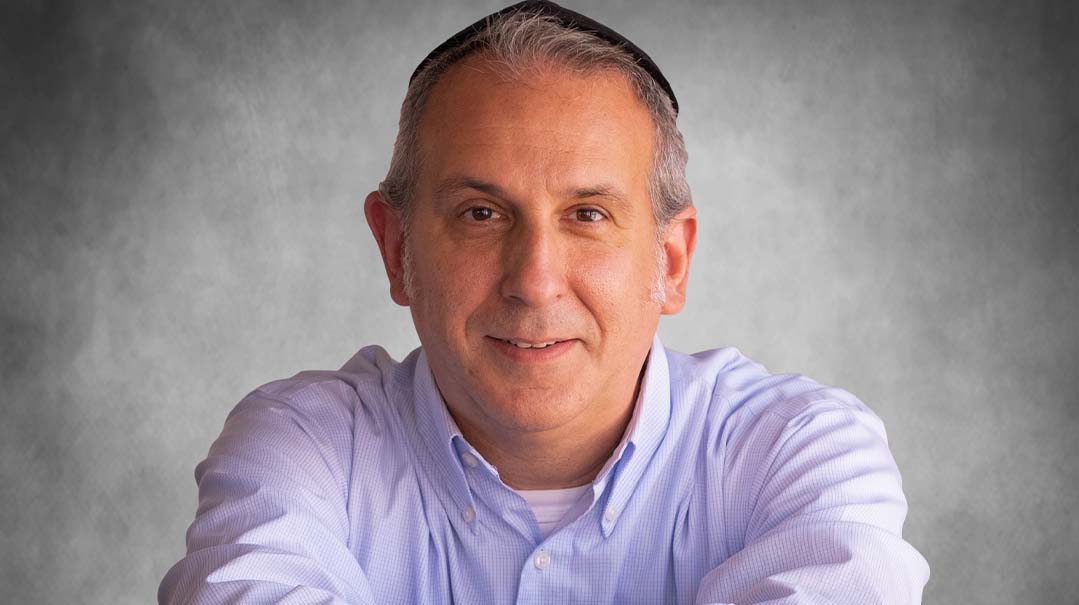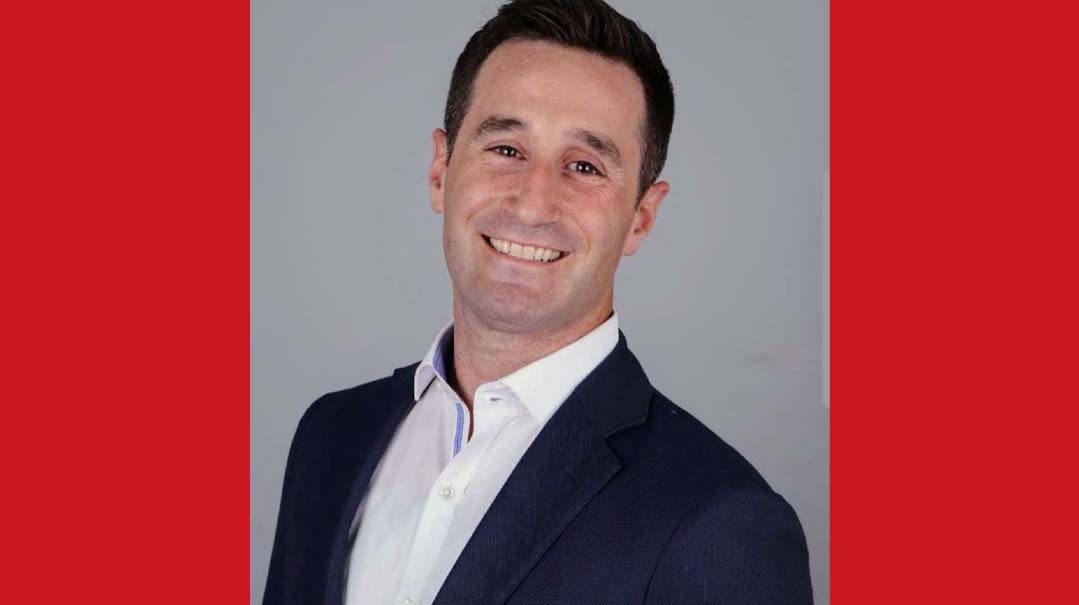Work/Life Solutions with Hillel Fuld

Who Hillel Fuld
Job title(s) Leading startup advisor, entrepreneur, journalist, vlogger
The good/service my business provides Advice and relationships. It’s a nontraditional business, there’s no model, and no one quite understands what I do, but basically I advise Israeli tech companies and help them build relationships with investors, journalists, and strategic partners in Silicon Valley and the US market.
Namedrop-worthy clients Google, Oracle, Microsoft, Huawei, and more. I’ve mentored Israeli startups with the Google Launchpad, the Microsoft Ventures accelerator, Techstars, The Junction, and other accelerators.
Number of employees 0
Number of followers online 100,000+
Claim to fame I was named Israel’s top marketer by Geektime, featured on CNBC, and dubbed “The Man Transforming Startup Nation into Scale-Up Nation” by Forbes.
1 of 9: What opportunities or personalities played a key role in your career path?
Over a decade ago, I was working at Comverse as a technical writer, writing user manuals for their telecommunications products — you know, those 300-page documents nobody reads. At the same time, I had a lot of thoughts about tech. I loved writing, so before “blogging” was a mainstream word, I started a blog called TechNMarketing. Within a few months, startups who read my articles started reaching out for advice. I was happy to sit, schmooze, and brainstorm — with no money involved. I became this guy you had to meet if you’re starting a company, and my inbox was soon flooded with emails from entrepreneurs who wanted to meet. That was followed by venture capitalists, who said, “We’re looking to invest, you know up-and-coming entrepreneurs, can you make the introductions?”
Advising entrepreneurs whose innovations shape the tech world was fun for me, and I was making shidduchim between them and venture capitalists, still with no business model or money involved. Then companies I’d helped early on asked me to join as an official advisor for all things growth-related — they’d pay a retainer to keep me on tap, to send them ideas and investors and leads. Because of the relationships I built, I have those contacts and leads. For companies that are focused on fundraising, I have relationships with investors I sent deals to over the years. For companies focused on PR, I have media relationships because I spent years generating and producing content for those same publications that I’m now pitching to. For companies focused on social media, I have those relationships because I constantly build my social platforms online.
When I first started doing this, when people asked why I wasn’t taking a cut, I didn’t have an answer. In retrospect, it’s the smartest thing I ever did: while everyone else was a vendor of some sort — selling something, charging something, monetizing something — I was simply a resource.
2 of 9: Which three character traits have played a key role in your success?
Consistency is underrated, but it’s essential when it comes to all things business, especially marketing. This applies across the board, whether it’s content, social media, or PR. For instance, if you pitch the press once every six months, you’re out of their minds for six months, but if you pitch monthly, it doesn’t mean they’ll write about you monthly, but you’re on their minds, you’re in their consciousness. I tell marketers if you have to choose between writing a highly-detailed, researched article every month and writing an article every day, do it every day. Even though the quality may be lower, it’s consistent.
Reliability — I like to under-promise and over-deliver. If a journalist says he’ll do the story I pitch him, I won’t go to the CEO and say we have the article. Rather, I’ll say I’m working on something, and when it happens, I come back and say, “Boom!” A lot of people overpromise and under-deliver, and then everybody loses.
Persistence — Over the years, I’ve wanted to accomplish things that made no sense. There’s no reason why I, a guy living in a small city in Israel, can cultivate a relationship with Steve Wozniak, Apple’s co-founder who built the home computer. He was at the top of my list of people I wanted to interview, so I started to engage with him online. I told him, “I want to interview you.” He responded he’s too busy, but I was persistent — or annoying — because it was a dream of mine, and he finally agreed. When I sent him the list of questions, I assumed he’d either not respond or send back one-word answers, but he wrote in-depth answers about his life and career. It was phenomenal, and it went viral. Woz himself then commented on the article, “Had I known it would’ve gotten this many likes, I would’ve let you interview me three years ago!”
5 of 9: If you were granted an extra three hours a day, what would you do with them?
Literally more of the same. I love tech, I love writing — I work 21 hours a day, and I’m having a great time. Why do I wake up at 3:30 in the morning? Because how can I not — I can’t miss tech news, because I love this stuff!
7 of 9: If you were asked to deliver a TED Talk, what topic would you choose to speak about?
“Extreme Giving,” which will probably be the title of my book — it’s my mantra, I speak about it a lot. It was actually the basis of the commencement address I gave recently at Touro College in New York. I witnessed extreme giving since I was young because my parents very strongly emphasized giving with no strings attached. They both excelled at their work in Jewish education, a field where you’re constantly giving, and we had an open home — Shabbos, meals, everything was about helping other people. My parents were always giving, that value is in my DNA.
One thing I like to speak about is interviews. I think an interview with someone is the most underrated growth hack, because the platform you give someone when you interview him can propel you to growth. Let’s say you start a blog tomorrow for your company, and you decide that once a week, you’ll do an interview with a legend in your space. You reach out to the biggest influencer: “Hi, I’m starting a new company blog and I’d love to interview you and share your insights with my industry.” Generally speaking, if you communicate properly, that person will agree — people like to be onstage, everyone likes to be interviewed. You send five to ten questions via email, they answer them. As soon as you hit “publish” on that interview, that person will share it, which means you get all that traffic to your brand-new blog, and everyone says, “Oh, my gosh, this guy just interviewed this influential person!” All of this works for one simple reason: because while everyone around you focuses on self-promoting, your focus is giving someone a stage.
I always had a full-time job, and my passion on the side was blogging, advising start-ups, that growth space. The job and the passion didn’t intersect until they did, and then they merged, and tech went from being on-the-side to a tangible marketing business. That’s why I say I built my entire career on being what we call in Hebrew a “freier” or in English a “sucker”: just giving.
8 of 9: How do you navigate the tension between your deepest values and the business world?
I don’t think there’s a contradiction between being observant and being in the tech world, but there certainly aren’t strong synergies. I always tell people that when you have a core identity, there are two ways to go about it: you can either shy away from it or you can own it, make it a part of your brand. Regardless of who I meet, I never take off my kippah. And people respond in kind — they’re usually respectful and accommodating. I remember when I met with Bradley Horowitz, a senior vice president at Google. He’s the guy who reports straight to Sergey Brin, cofounder of Google and president of Alphabet, its parent company. Bradley went out of his way to get me kosher catering — and if you’ve been in Silicon Valley, you know it’s not easy to find kosher food there!
But yes, I have had fall-outs, anti-Israel people unfollowing me because they don’t like what they call my “war tweets.” Paul Graham and Chris Sacca, both massive names in the tech space who are anti-Israel and verbal about it, block me on Twitter. But that’s okay — I need to own up to my beliefs, because they’re part of me and my brand.
9 of 9: What dos and don’ts would you share with someone hoping to launch a career as an entrepreneur?
It sounds cliché, but you need to go all-in on your passion. I don’t care what you’re passionate about, and I don’t care how many other people on this planet are as passionate as you are. This isn’t a zero-sum game; there are many tech bloggers out there, but there are billions of people on the internet, so there can be tens of thousands of successful tech bloggers! Get yourself a niche and aim to own it. Even if you’re not the top tech blogger on the internet, you can still be named number eight, which happened to me recently. But it doesn’t matter whether I’m eight or 800, all I care is about making a dent. I never invested any money in my blog — the only things I’ve invested are my ten fingers and a keyboard — but I know I’m making a dent. (Originally featured in Mishpacha, Issue 720)
Oops! We could not locate your form.













